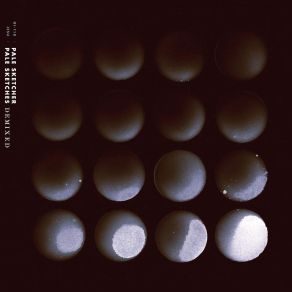Jesu: Pale Sketches Demixed
Download links and information about Jesu: Pale Sketches Demixed by Pale Sketcher. This album was released in 2010 and it belongs to Electronica, Industrial, Jazz, Alternative genres. It contains 8 tracks with total duration of 46:42 minutes.

|
|
|---|---|
| Artist: | Pale Sketcher |
| Release date: | 2010 |
| Genre: | Electronica, Industrial, Jazz, Alternative |
| Tracks: | 8 |
| Duration: | 46:42 |
| Buy it NOW at: | |
| Buy on iTunes $7.92 | |
Tracks
[Edit]| No. | Title | Length |
|---|---|---|
| 1. | Don't Dream It (Mirage Mix) | 5:22 |
| 2. | Can I Go Now (Gone Version) | 5:46 |
| 3. | Wash It All Away (Cleansed Dub) | 5:07 |
| 4. | The Playgrounds Are Empty (Slumber Mix) | 6:58 |
| 5. | Tiny Universe (Interstellar) | 4:47 |
| 6. | Supple Hope (2009 Mix) | 6:38 |
| 7. | Dummy (Bahnhoff Version) | 5:40 |
| 8. | Plans That Fade (Faded Dub) | 6:24 |
Details
[Edit]Leave it to the hyper-prolific Justin K. Broadrick to use a collection of misfit tracks as a platform for yet another alias. Pale Sketches, issued in 2007, gathered stray material not suited for a proper Jesu release. Less imposing and more electronic than Broadrick’s typical Jesu output, crunching programmed beats and synthetic textures were far more common than grinding guitar riffs. On Jesu: Pale Sketches Demixed, Broadrick operates as Pale Sketcher and renders all eight of the Pale Sketches tracks even more atmospheric and abstract. “Dummy” is stripped of its menace — its churning, constricted guitar — and beams with spangly prickles over a charmingly clunky rhythm that is only slightly changed, less stiff compared to the original. On “Plans That Fade (Faded Dub),” the swarming effects that curdle throughout “Plans That Fade” are teased out and smeared, with its vocal treated so heavily that it resembles Peter Frampton singing a bit of “Do You Feel Like We Do” from the bottom of a well. “Can I Go Now (Gone Version),” the most evocative "demix," transforms the original from a brisk and active main title into a wistful love theme, tapping into that sense of disoriented longing conveyed by Boards of Canada on “Everything You Do Is a Balloon” and by Ulrich Schnauss on “Molfsee.”